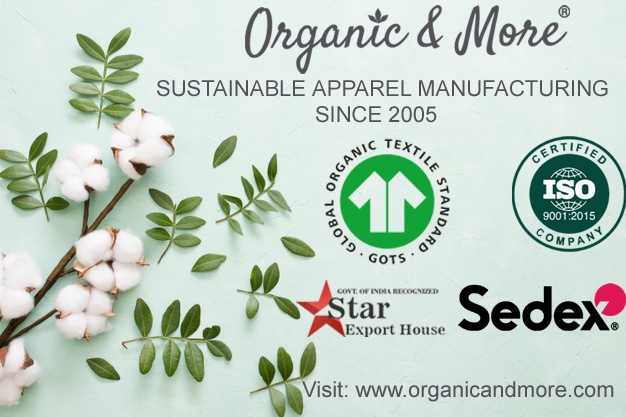Organic fabrics are made and certified to organic farming ethics, some common examples of organic fabrics include bamboo, hemp, velour, jersey, yarn and silk. Safety standards are much healthier when naturally or organically producing fabrics and fibers. The greatest common gradual or organic fabric is cotton. Organic cotton is developed in a way that usesprocedures and resources that lessen the impacton our environment or atmosphere. A big effort in the organic movement is to use rising systems that replace and continue soil richness and build naturally assorted farming.
That actuality said, organic cotton uses binary the quantity of water than normal cotton manufacture. On normal, 2000 liters is used for just one t-shirt made from organic cotton. Organic textiles agriculturalists are under stress as they cannot keep up with the ultimatum of the manufacturing. Cotton is one of the poorest fabrics in the industry, as the amount of fertilizers and pesticides used to make cotton is injurious nevertheless, in organic yarn and organic fabrics have none. That’s why it’s extremely watched as being healthier for the atmosphere and being eco-friendly or environmental. Nonetheless, the professionals of using organic fabrics are that it is more appropriate for people with delicate skin, breathable, trivial and lightweight.
How organic cotton is ready and composed:
1) Seed research: Natural, Organic GMO free seeds.
2) Soil – research: Strong soil through crop rotation. Retains moisture in soil from improved organic matter.
3) Weed control: Strong soil creates natural balance. Advantageous insects and trap crops used
4) Harvesting: Normal or natural defoliation from freezing temperatures or through the use of water controlling
5) Making: Warp fibers stabilized consuming double-plying or harmless cornstarch.
6) Whitening: Harmless peroxide is used
7) Finishing: Soft wash in warm water with soda ash for a PH of 7.5/ 8
8) Coloring: Natural colors are used
9) Printing: Water-based inks and colors are used to pattern designs on the fabric.
Email us for your enquiry: shikha@organicandmore.com



Recent Comments